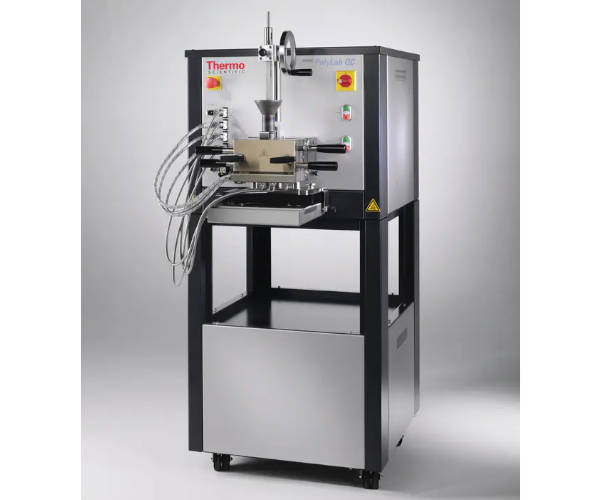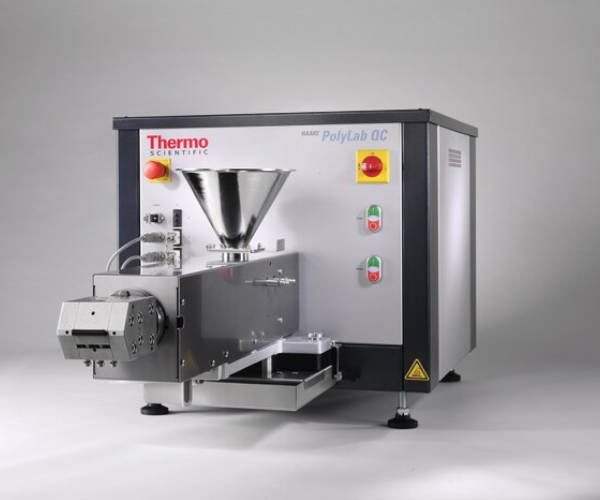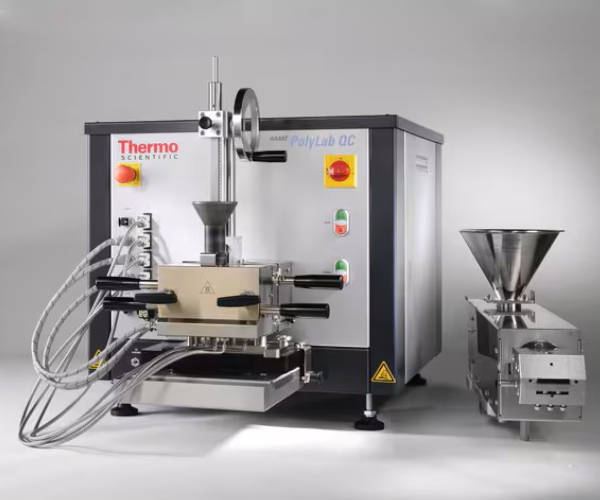REQUEST A QUOTE / ENQUIRY FORM
HAAKE™
PolyLab™ QC system 1
HAAKE™ PolyLab™ QC system 2
HAAKE™ PolyLab™ QC system 3
HAAKE™ PolyLab™ QC system 4
HAAKE™ PolyLab™ QC system 2
HAAKE™ PolyLab™ QC system 3
HAAKE™ PolyLab™ QC system 4
- Speed Range: 0 to 200 rpm
- Torque Range: 0 to 300 Nm
- Temperature Control Zones: 5
- Temperature Reading Channels: 4
- Measuring Sensor Connection: CAN open control communication with temperature, motor controller I CAN open data communication for pressure and remote signals I USB interface to host computer (LAN as option)
- Analyze polymer melt behavior during melting and degradation.
- Evaluate the gelation and plasticization of PVC dry-blends.
- Quantify the flow and curing characteristics of thermosetting plastics.
- Investigate the impact of various additives (carbon black, fillers, lubricants, accelerators, or sulfur) on rubber mixtures.
- Measure the effect of nano-particles and additives on viscosity.
- Record the changes in elastomer properties during mastication and vulcanization.
- Determine the oil absorption capacity of carbon black.
- Quantify the DOP absorption in PVC dry-blends.
- Assess the processability of high-performance plastics.
- Measure the stability of torque under the combined influence of fillers, additives (stabilizers, lubricants, color pigments), and individual factors.
- Perform electrical conductivity measurements on rubber mixtures.
| HAAKE PolyLab System |




